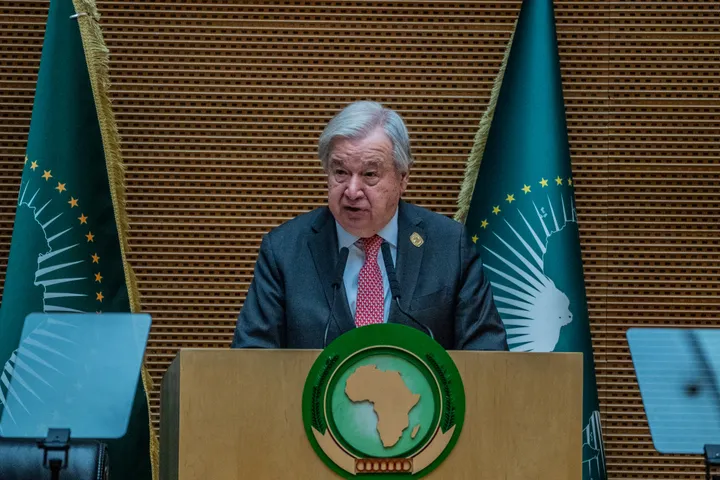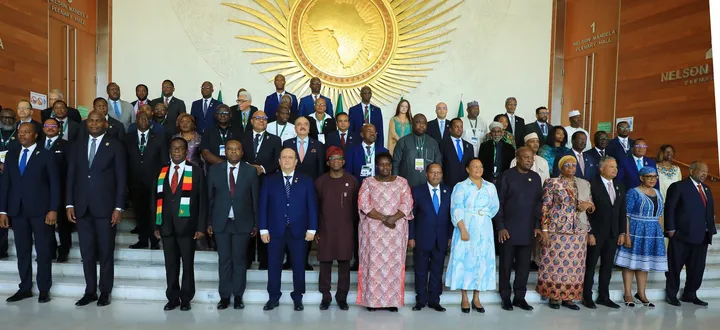By Emmanuel Onyango and Kudra Maliro
Underneath the killing fields in eastern Democratic Republic of Congo lies much sought-after minerals that have been the bane of Africa's second largest country.
It is potentially one of the richest countries on earth but colonialism and the bloodiest conflict since World War II has turned Congo into one of the poorest and most failed.
About six million people have been killed so far in a conflict rarely highlighted by global media, with approximately seven million others displaced and thousands of women raped.
''With ongoing conflict and escalating violence, the DRC is facing one of the largest internal displacement and humanitarian crises in the world," the UN's International Organization for Migration (IOM) said in a statement last week.
The majority of internally displaced persons, about 5.6 million or 81%, live in the eastern provinces of North Kivu, South Kivu, Ituri, and Tanganyika, where several rebel groups operate, according to IOM.
IOM said in North Kivu alone, up to one million people have been displaced.
"More than two-thirds of the internally displaced persons, nearly 4.8 million people, live in host families," the UN agency said.
Fabien Sambussy, IOM's Chief of Mission in DRC, said: "The most recent escalation of the conflict has uprooted more people in less time like rarely seen before."
Post-colonial meddling
The conflict has claimed more victims than the conflict in Yemen or the Russian-Ukrainian crisis but it has not received the same attention from the international community.
The conflict is a product of Congo's chequered history as well post-colonial meddling by Western powers.
It now features rebel forces that have curved out spheres of influence in eastern part of the country known to have great mineral wealth, most notably gold and diamonds.
At least a dozen of such armed groups are known to operate in the region who make money by controlling the trade in minerals. Some of Congo's neighbours have been accused of sponsoring and arming the groups.
The M23 militant group has been most active in the region. Rwanda has long denied accusations by the United Nations and United States that it supported the group that currently controls large swathes of territory in eastern Congo.
"The aggression suffered by the DRC from Rwanda, under the guise of the M23 rebellion, is contributing to the theft of mining resources and the destruction of the important biodiversity of Virunga Park", declared Congolese President Félix Tshisekedi, at an environmental summit in Brazzaville last October.
"This sustained instability in the DRC benefits Rwanda enormously and economically, which is why Rwanda will never want to talk, which is why the DRC refuses to talk to these M23 puppets", said Tshisekedi.
Contacted by TRT Afrika, Rwandan government spokeswoman Yolande Makolo condemned "false and unverifiable statements to divert attention from their (the Congolese army) inability to respect regional peace processes".
Multinationals' interests
"In flagrant violation of the East African Community-led Nairobi process and the Luanda roadmap, the DRC government has chosen to give arms and fight alongside illegal armed groups, notably the genocidal FDLR militia, and foreign mercenaries", added the Rwandan government spokeswoman.
DR Congo's large deposits of rare minerals has attracted multinationals seeking to get supplies from this part of Congo.
The country produces 60% of the world's supply of cobalt. It also has lithium that is a vital component of electric car batteries. Wood is also highly prized by Asian countries in particular.
Yet most of the extraction of these precious metals is conducted outside formal government channels and there have been concerns of human rights abuses.
US tech giants Apple, Samsung and Sony have previously been accused by human rights organisation Amnesty International of failing to do basic checks to ensure minerals used in their products are not mined under dangerous conditions for children. The firms replied that they had a zero tolerance policy towards child labour.
The trade in minerals is seen as a huge incentive for the continuation of conflict that has been running for decades as armed groups retain control of mining sites
Non-governmental organisations and even the UN have regularly denounce the illegal trafficking of resources from the Congo to other countries.
A report published by a UN panel of experts in December 2020, stated that "criminal networks have been involved in the trafficking of tin, cobalt and tungsten from mining sites under the occupation of armed groups."
In mid-2020, the US Congress passed the Dodd-Frank Wall Street Reform and Consumer Protection Act, requiring major US-based technology companies to declare the origin of their minerals.
The aim was "to put in place a traceability system to ensure that these companies do not buy minerals that finance the activism of armed groups, also known as blood minerals".
However, experts say the exploitation of Congo's resources continues unabated and the conflict continues to claim lives and shatter livelihoods with little global attention.
One solution being fronted to resolve the crisis is for the country to redefine its alliances with other nations as part of a development strategy. A review of the domination of Western nations in the country's extractive sector could be a starting point.
"Congo's minerals must not continue to be a source of misfortune for our people but must really serve to fulfill the long-spoiled fate of the sons and daughters of the country," said Kalonji Bilolo Trésor, a social activist.
Read more: There must be real diagnosis for Congo to enjoy its own wealth























